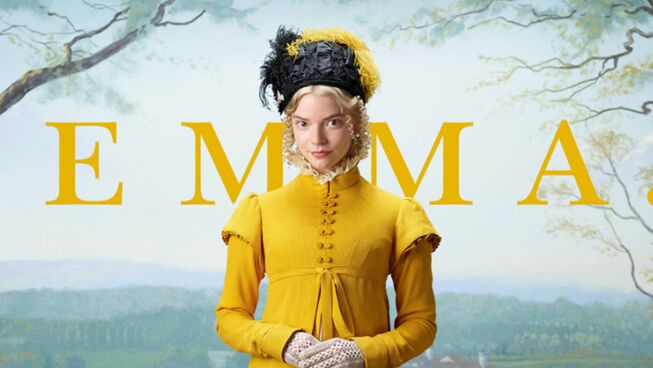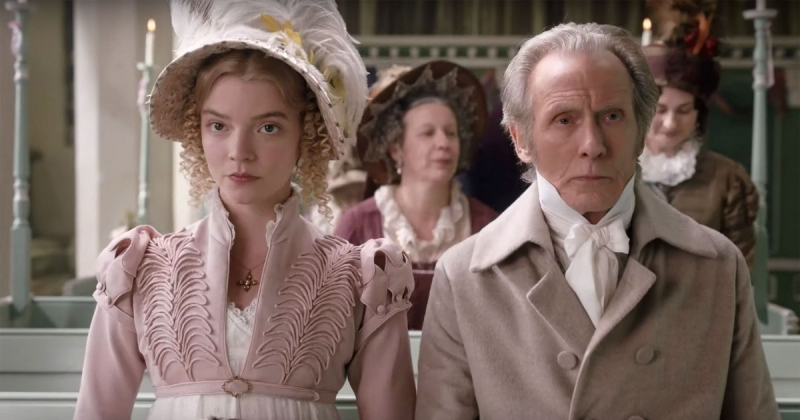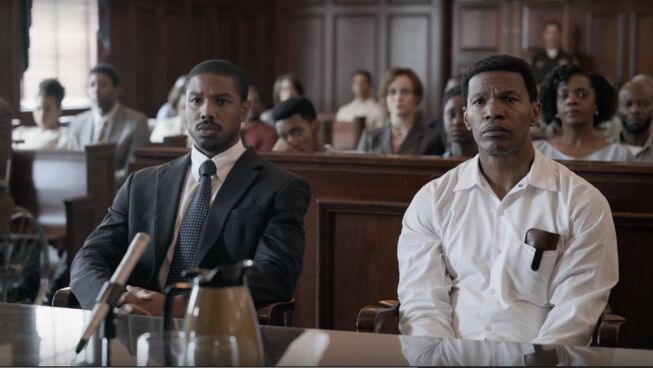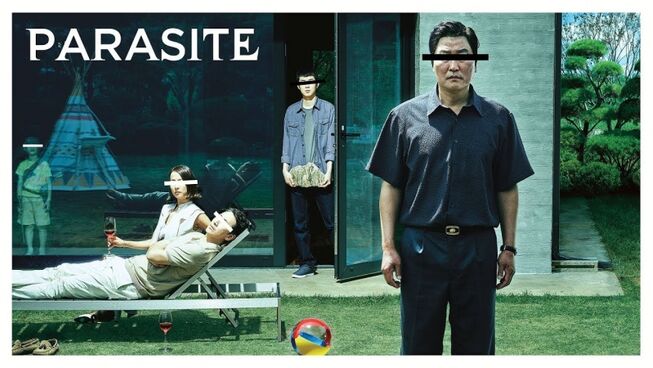
4 out of 5 stars
Was it George Bernard Shaw or Oscar Wilde who said, ‘Love is wasted on the young?’ Regardless of the man behind this infamously short quip, there is a subtle brilliance and deep sadness behind these words. A statement that encapsulates the essence of Jane Austen’s comedy, Emma. A tale of a young woman who thinks that she has a knack for matchmaking and knows more about love than anyone at her age could possibly know. The love she seeks for others and secretly for herself can only come through the pain of loss and with the realisation that it is an emotion that is impossible to control.
In her part of the world, Emma Woodhouse (Anya Taylor-Joy) sees herself as the puppet master of love and the small English community are her playthings. She is revered by many, because of her wealth and beauty, which she uses to control people's lives. Seeing herself as the matchmaker for her governess, Emma takes it upon herself to take on a new project in the tight-knit community. The innocent and unsophisticated Harriet Smith (Mia Goth) may be in a lower social class, but this does not deter the meddling socialite from trying to find the young woman a husband of stature and wealth.
What seems to be a simple task, becomes a twisted series of events that turn into a bewildering web of deceit, love and loss. Emma tries to deter Harriet from the following her heart to marry the local tenant farmer and steers her friend into the arms of the charismatic church rector, Mr. Elton (Josh O'Connor). This selfish and misguided act draws the attention of her long-time friend and neighbour, George Knightley (Johnny Flynn), who attempts to make his friend see the error of her ways. Without taking on the advice of her childhood companion, Emma manages to cause more pain and difficulty for each person that gets entangled in her well-intentioned, but naive actions.
The timeless nature of Jane Austen’s stories is how they manage to depict the very heart and complexities of humanity. Add to this the visual finesse of first-time director Autumn de Wilde, who manages to capture subtleties of the glances and touches that complement the famous author's literary style. The subtle brilliance and humorous dialogue that may be lost on modern audiences are carried through with the stunning sets, costuming and acting of the central cast. This version of Emma proves that this timeless tale can entertain and capture the imagination of today’s viewers.
 There are not enough words to express the visual smorgasbord used to convey this familiar story of misguided love. Between the pastoral backdrops and the attention to detail of each costume, de Wilde manages to capture the quirky and comedic elements while conveying the beautifully tragic elements. Then to have a talented young cast to carry the lyrical tone and subtly vicious nature of the script, she gets terrific performances out of Anya Taylor-Joy and Johnny Flynn who immerse themselves in these critical roles. They manage to depict the measured passion and simulated disdain that each needs to carry this film through to the end.
There are not enough words to express the visual smorgasbord used to convey this familiar story of misguided love. Between the pastoral backdrops and the attention to detail of each costume, de Wilde manages to capture the quirky and comedic elements while conveying the beautifully tragic elements. Then to have a talented young cast to carry the lyrical tone and subtly vicious nature of the script, she gets terrific performances out of Anya Taylor-Joy and Johnny Flynn who immerse themselves in these critical roles. They manage to depict the measured passion and simulated disdain that each needs to carry this film through to the end.
The youthful cast is complemented with the outstanding casting choices of Bill Nighy and Miranda Hart as the endearing support cast. Each cast member adds to the narrative and helps to keep one's attention through this twisted and madcap journey. There are moments when it seems things are about to go off the rails and then the story gets back on track to deliver one of the best choices for lovers this year.
Reel Dialogue: What is it about a subtle look or touch?
One aspect that has been lost in modern cinema is the beauty of the subtle look and touch. Modern audiences are barraged with romance that involves brutish force and little nuances. What films like Emma offer are a look into the value of the innocent and intentional touch that conveys more than a sloppy, wet kiss could ever deliver.
Today’s romance has lost the value of the soft touch and wanting look from those we love. There is a beautiful depiction of this in the remarkable book of the Song of Songs when it states that, ‘You are altogether beautiful, my darling; there is no flaw in you.’ One exquisite look by a man on his bride that captivates him to the point of seeing only her and the beauty she represents in his world.
The masterful turn of Austen’s words and Autumn de Wilde's visual finesse capture the value of the simple elegance of the innocent look and wanting touch. A complement of humour, beauty, pain and love that is more of a reflection of the real world than you would expect out of 19th-century aristocracy. It shows the world that there is value in the simple look, touch and kiss that have a profound effect on romance and relationships, even in the 21st-century.








